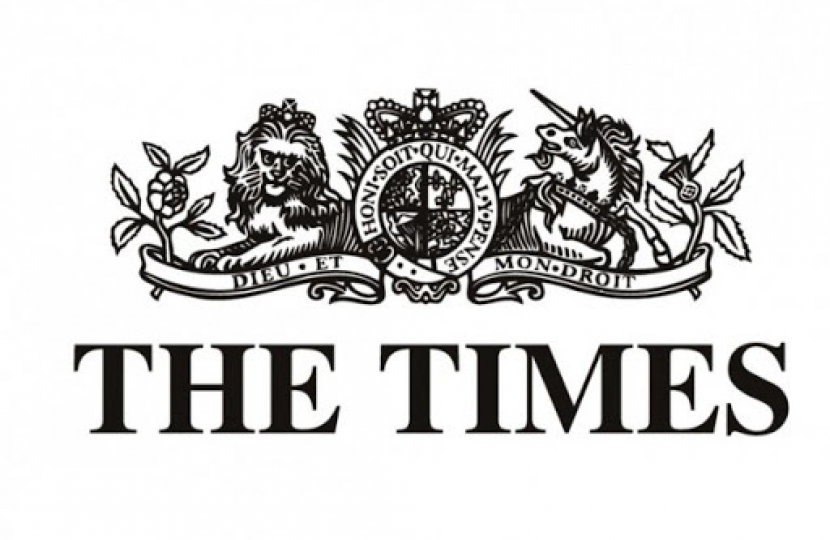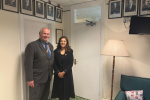
Nusrat Ghani, the business and trade minister, wants more women-owned and women-led businesses to sell their wares overseas and has launched an initiative to support them.
The Women’s International Networking programme is free to join and includes coaching, networking events and workshops. Ghani’s department said the workshops would provide “all the essential skills and knowledge needed to overcome personal barriers such as impostor syndrome, personal branding and confident [business] pitching”.
It has signed up 30 small businesses so far, including Amazing Jane Activewear, led by Claire Goodliff, its co-chief executive, and Freya Rose London, a shoe and jewellery designer founded by Freya Rose Archer. The businesses are joining a trade mission hosted by the Department for Business and Trade at the Retail Summit in Dubai this month.
The launch of the initiative comes before the latest round of UK trade deal talks with the Gulf Co-operation Council, which comprises Bahrain, Kuwait, Oman, Qatar, Saudi Arabia and the United Arab Emirates.
The department said the bloc was the UK’s seventh-largest export market, with total bilateral trade worth more than £54 billion in the year to September. Its demand for imports is expected to grow by 35 per cent to £800 billion per year by 2035.
Ghani said: “The potential for growth in markets like the Gulf is huge, and a UK trade deal with the GCC could unlock even more opportunities for firms right across the country.”
A government-backed review of female entrepreneurship found that women had established 151,603 companies in 2022, up by 6,332 on the previous year. They represented 20 per cent of all new incorporations, compared with 16.7 per cent in 2018.
Ghani’s efforts mark a contrast with the restrictions that aspiring businesswomen have long faced in the Gulf states. While women can set up businesses across the region, those in Qatar and Kuwait are still not permitted to sign contracts, according to the World Bank.
There are signs that this environment is changing, however. In the UAE 14 per cent of newly registered self-employed people were women in 2021, the latest World Bank figures show, while this figure was 22 per cent in Qatar. Last year women made up 37 per cent of all self-employed workers in the UK.
Women aged 21 and over were allowed to drive for the first time in Saudi Arabia in 2018, alongside the lifting of restrictions on leaving the home, the introduction of rights protecting against unfair dismissal during pregnancy and the improvement of access to credit. In January, a Saudi minister said that women made up 37 per cent of the country’s workforce, up from 17.7 per cent in 2016.
A report by analysts at the US-based Endeavor Insight found that Saudi Arabia had a higher percentage of women working in tech start-up companies than Europe did. In the third quarter of 2021, 28 per cent of workers in the Saudi tech sector were women, compared with the European average rate of 17.5 per cent.
This weekend Abu Dhabi is hosting the World Women Entrepreneurs Summit, which is focused on digital entrepreneurship and is part of the UAE’s plans for “enhancing the status of women in society”.
Andrew Mitchell, a minister in the Foreign, Commonwealth and Development Office, has highlighted the government’s growing links with the Gulf, citing the sponsorship of a UK-Gulf women in cybersecurity fellowship, “where rising stars in the cyber world from Gulf countries are supporting positive female role models, promoting peer-to-peer learning and boosting collaboration on cyber between their countries and the United Kingdom”.
The original article is available here.

